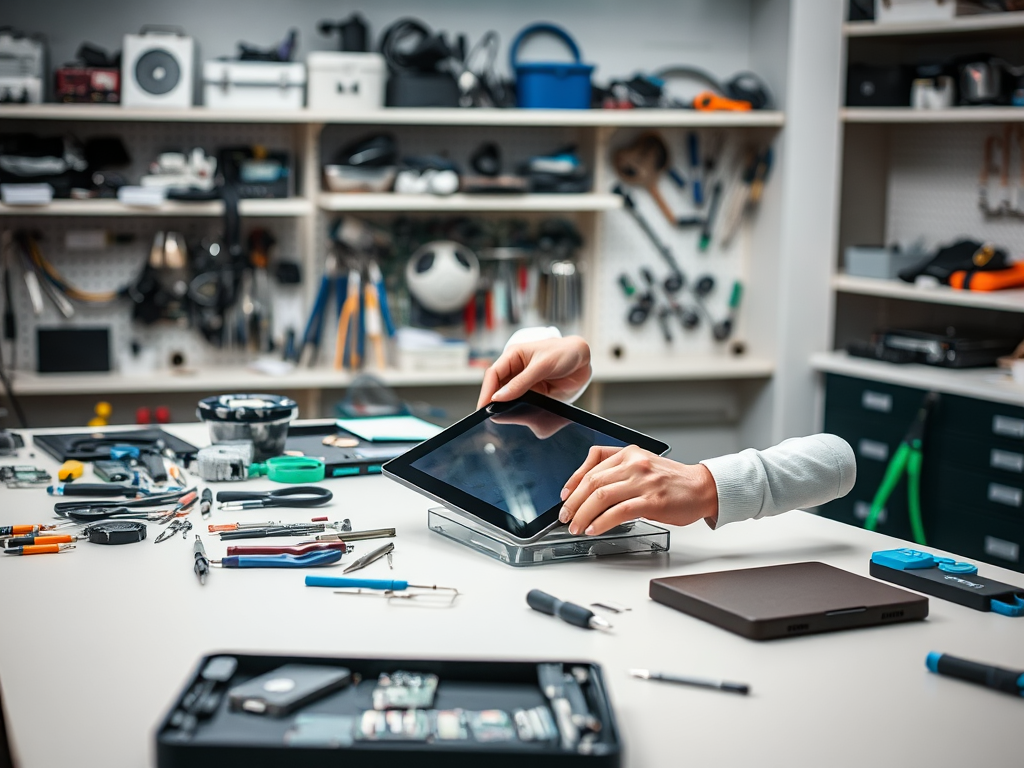In a world where technology advances at a breakneck pace, keeping your phone up-to-date has never been more critical. Your smartphone plays a central role in your day-to-day life, from communication to entertainment, and even managing your daily tasks. However, as the landscape of mobile technology evolves, so too does the necessity of evaluating whether it’s time to upgrade your device. This article aims to guide you through the various aspects to consider before making that crucial decision. Thoroughly exploring your current phone’s performance, battery life, and compatibility with new software will empower you to make an informed choice.
Many people overlook the potential indicators of needing an upgrade, often waiting until their device is nearly obsolete. This approach can lead to frustration and hinder productivity. Therefore, being proactive about your phone’s performance is essential. Among the first signs to look for are how smoothly your phone operates daily. When assessing whether to upgrade, it is vital to consider your specific needs versus how well your current device meets those demands.
Understanding Your Current Phone’s Performance

First and foremost, an in-depth assessment of your current phone’s performance is essential. Are you frequently facing performance issues, such as lagging, crashing, or slow app launches? These problems can signal that your device no longer meets your needs. Look out for common performance indicators like multitasking ability and response time when switching between apps. Nevertheless, you don’t have to suffer endlessly with an outdated device. Knowing when to upgrade can significantly enhance your user experience.
- Consider how well the phone handles running multiple apps simultaneously.
- Monitor for frequent error messages or unexpected crashes.
- Evaluate how quickly the phone responds to commands and touch inputs.
Battery Life Considerations

A noticeable decline in battery life is often one of the most compelling reasons to consider an upgrade. If your phone no longer holds a charge throughout the day or takes an extraordinarily long time to recharge, it may be time to let it go. Battery performance can significantly impact your overall experience, so it’s worth paying attention to. Look for specific signs such as rapid depletion and whether your phone is unhealthy enough to require a constant charging source. Often, battery issues indicate that the phone’s age is catching up with it.
| Battery Issue | Indicator |
|---|---|
| Rapid Drain | Battery drops 30% within an hour of normal use |
| Long Charging Time | Taking over 3 hours to reach full charge |
| Inability to Hold Charge | Phone shuts down at 20% battery remaining |
Software Updates and Compatibility
Software updates play a critical role in maintaining the performance and security of your device. A phone that isn’t receiving updates may become vulnerable to software bugs and security risks. Investigate whether your manufacturer still provides regular updates by checking their official site. Consider also whether your current operating system is compatible with the latest apps you want to use. If your phone doesn’t support new versions or essential updates, it may be time for a change as ongoing software support ensures your phone runs smoothly and safely.
In today’s digital landscape, security is more important than ever. Cyber threats abound, and staying ahead of potential vulnerabilities is vital. If your phone missed critical security updates, your data could be at risk. Be proactive; much like you wouldn’t leave your front door open, you shouldn’t compromise your phone’s security either. Reviewing the frequency and relevance of security updates for your device can provide critical insights into whether it’s still a reliable tool for today’s usage.
Hardware Limitations
Your phone’s hardware also determines how well it meets your daily demands. Evaluate its storage capacity, as running out of space can hinder your ability to install new apps or save important files. Are the cameras performing to your satisfaction? Camera technology has rapidly advanced, and your older model may no longer capture photos or videos with the clarity you’re looking for. Pay attention to what features are most critical for you, as this can help streamline the selection process for a new phone.
- Assess how much space is available on your device for apps and files.
- Evaluate the quality of photos and videos, considering newer enhancements.
- Think about whether you need improved performance for gaming or media consumption.
Special Features and Innovations
New smartphones come with technology that enhances user experience in various ways. Features like 5G connectivity, improved artificial intelligence capabilities, or better biometric security methods are increasingly becoming mainstream. If your current phone lacks certain features that are now industry norms, this could significantly impact your mobile interaction. Reflect on what features excite you about the newer models and determine if these enhancements justify an upgrade. Making a list can aid in comparing models more effectively.
Budget and Financial Considerations
Finally, before making a decision, ensure you understand the financial implications of a new device. Set a budget that is realistic based on your needs and the features you desire. Are payment plans more manageable for your financial situation? Also, consider trade-in options or discounts offered by carriers when upgrading. Ultimately, weighing your financial readiness will guide you toward making a prudent choice.
Conclusion
In concluding whether to upgrade your phone, you must reflect upon various factors such as performance, battery life, compatibility, hardware limitations, and financial considerations. Evaluating these elements helps you determine not just when it’s time for an upgrade, but also what kind of phone would best suit your needs. Making an informed decision ensures you remain connected, productive, and secure in today’s fast-paced technological world.
Frequently Asked Questions
- How often should I consider upgrading my phone? It’s generally advisable to upgrade every 2-3 years, depending on your needs.
- What signs indicate that my phone is slow? Frequent app crashes, long loading times, and lag during multitasking typically indicate slowness.
- Is it worth upgrading if my phone still works? It depends on your specific needs. If you find your device lacking in features or performance, it may be time to upgrade.
- Can I upgrade my phone without switching carriers? Yes, many devices can be bought unlocked or under certain plans that don’t require a carrier switch.
- What should I look for in a new phone? Consider battery life, camera quality, software compatibility, and additional features that suit your lifestyle.









